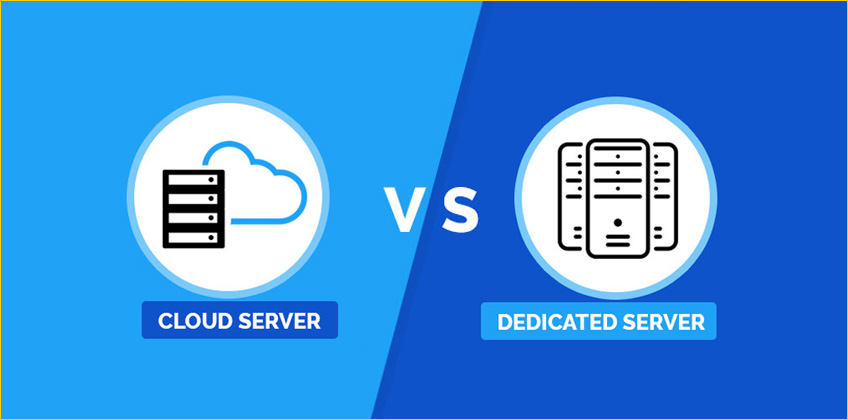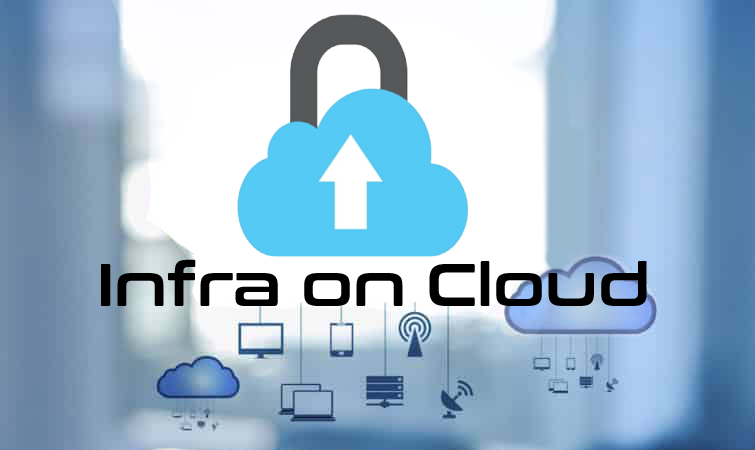What is a Dedicated Server?
A dedicated server refers to a hosting service in which an entire physical server is leased or dedicated to a single client or user. In this setup, the client has exclusive access to all the resources, computing power, storage, and other capabilities of that server without sharing them with other users.
Businesses and individuals favor dedicated servers with specific performance, security, and customization needs. They offer robust resources and control but might require technical expertise for setup, configuration, and ongoing maintenance.
What is a Cloud Server?
A cloud server, also known as a virtual server or cloud hosting, refers to a type of hosting service that operates on a virtualized infrastructure provided by a cloud computing environment. Unlike dedicated servers which are physical machines, cloud servers are virtual instances running on a network of physical servers, storage devices, and other hardware components in data centers.
Cloud servers are suitable for a wide range of applications and businesses, offering flexibility, scalability, and cost-efficiency. They are particularly beneficial for startups, small to medium-sized businesses, and enterprises requiring dynamic resource allocation, scalability, and high availability without the upfront investment in physical infrastructure.

Difference between Dedicated Servers and Cloud Server
Dedicated servers and cloud servers are two different types of hosting solutions that cater to various needs and offer distinct advantages and drawbacks. Here’s a breakdown of the main differences between them:
Dedicated Servers:
Physical Server: Dedicated servers are actual physical servers located in data centers. When you opt for a dedicated server, you are leasing an entire physical machine exclusively for your use.
Performance: Dedicated servers often provide better performance and reliability for applications that require high computing power, as you have full access to the server’s resources without sharing them with other users.
Customization: You have complete control over the server’s configuration, including hardware specifications, operating system, software, and security settings. This flexibility allows for tailored setups to meet specific needs.
Scalability: Scaling a dedicated server generally involves physically upgrading components or migrating to a more powerful server, which can take time and may cause downtime during the process.
Isolation and Security: Dedicated servers provide a higher level of security and data privacy compared to shared hosting options because the client has sole access to the server. This reduces the risk of security breaches due to the activities of other users on the same server.
Cost Effective: Dedicated servers tend to have higher upfront costs and ongoing maintenance expenses because you’re paying for the entire server’s resources.
Cloud Servers:
Virtualized Server: Cloud servers run in a virtualized environment using underlying physical hardware from a vast network of computers. They are provisioned and operated over the Internet.
Scalability: Cloud servers offer excellent scalability. You can easily scale resources up or down on demand, often paying for the resources you use, which makes them highly flexible.
Resource Sharing: Cloud servers operate on a shared infrastructure, which means resources such as CPU, RAM, and storage are shared among multiple users. This sharing can sometimes lead to performance fluctuations, especially during peak usage times.
Pay-As-You-Go: Cloud servers offer more flexibility in terms of payment models, often allowing pay-as-you-go or subscription-based billing. Users can adjust resources based on their current needs, potentially saving costs when usage is low.
Redundancy and Reliability: Cloud infrastructure is designed for redundancy and reliability. Data is often replicated across multiple physical locations or servers, reducing the risk of downtime due to hardware failures or maintenance.
Managed Services: Some cloud providers offer managed services, taking care of routine maintenance, security patches, and backups, reducing the administrative burden on the users.
Conclusion:
In summary, choosing between dedicated servers and cloud servers often depends on factors such as performance requirements, scalability needs, control, budget, and the level of expertise available to manage the infrastructure. Dedicated servers are suited for high-performance, specific workload requirements, while cloud servers offer scalability, flexibility, and cost-effectiveness, especially for fluctuating workloads and businesses seeking more dynamic resource allocation.
![]()

